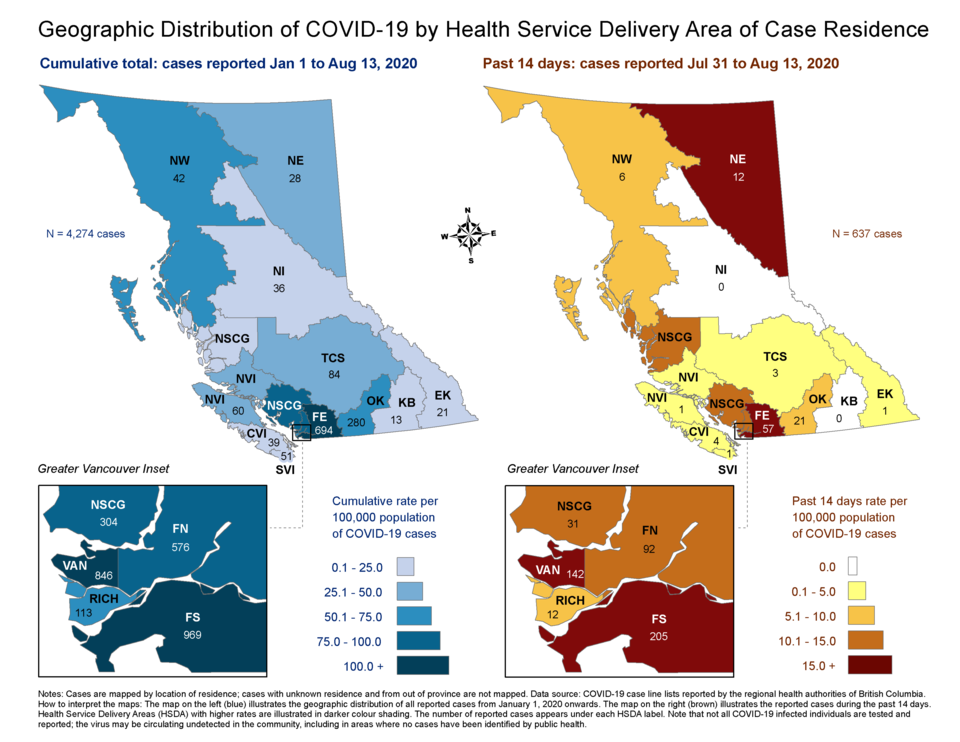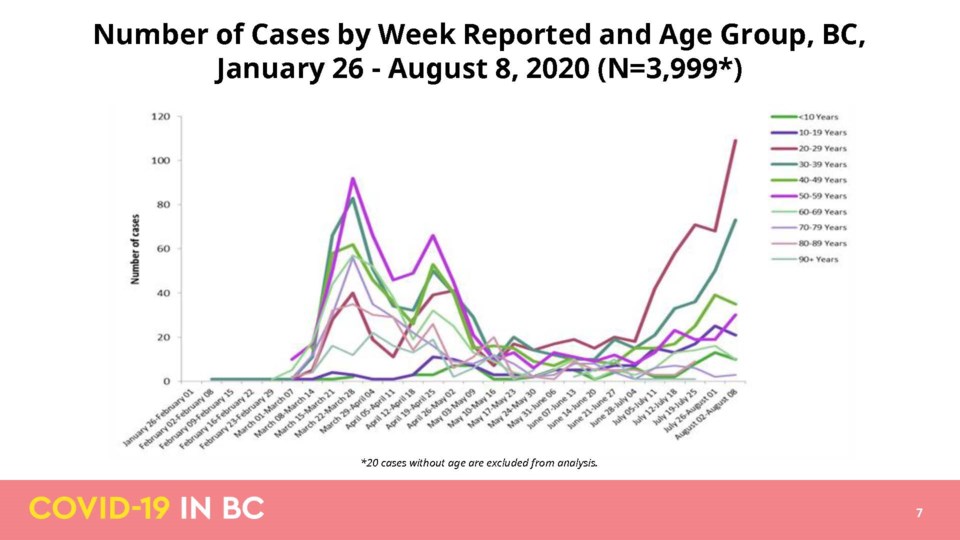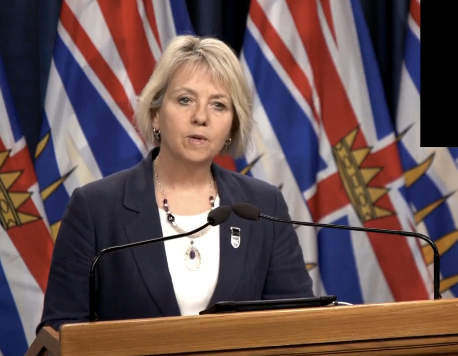North Shore Coast Garibaldi health region had 31 new cases in two weeks leading up to Aug. 13 – double the number of new cases reported in the two-week period ending a week earlier on Aug. 6.
The North Shore Coast Garibaldi health regional includes North and West Vancouver, Whistler, Squamish and the Sea to Sky corridor plus the Sunshine Coast and Powell River.
The figures – which mean there were 17 new cases reported between Aug. 6 and 13 – are part of a disturbing increase in the COVID-19 cases being reported in B.C.
There were 393 new cases of the virus reported in the province between Aug. 7 and 13, according to B.C.’s Centre for Disease Control – a 36 per cent increase over the number of new cases reported a week previously.

In the past week there have been days when over 70 and over 80 new cases have been reported – some of the highest numbers since the early peak of the pandemic in March - compared to daily case numbers that had been hovering at around 20 earlier this summer, and sometimes dipped into single digits.
Much of the increase in numbers is being blamed by health officials on private parties being attended by people in their 20s and 30s in the Lower Mainland. Over 90 per cent of new cases have been in the Vancouver Coastal and Fraser health regions.
People in their 20s now make up the largest age group of COVID-19 cases in B.C. at 19 per cent of all cases, although they account for only 13 per cent of the general population. People in their 30s make up 18 per cent of cases, although they are 14 per cent of the population.
Hospitalizations and deaths have remained low, likely due to the younger age of those contracting the virus.

But Health Minister Adrian Dix and Dr. Bonnie Henry, B.C.’s medical health officer, warned that increasing rates of community transmission, even among young people, always carry the risk of spilling over to more vulnerable populations, like the sick and the elderly, who tend to have more serious complications.
Henry added while most young people who get the virus have mild symptoms, some can experience profound fatigue and shortness of breath that lasts for a long time. Some people can also develop blood-clotting disorders that can lead to clogging of arteries around the heart, than can show up weeks after the initial infection, she said.
Henry said modeling shows people in B.C. are up to about 70 per cent of their normal activities.
“We are on an upward trajectory that is concerning, but it's not a predictive model,” she said. “It doesn't tell us what's going to happen. It tells us what can happen. And right now we have it within our ability to make the changes we need to bend that curve back down.”



